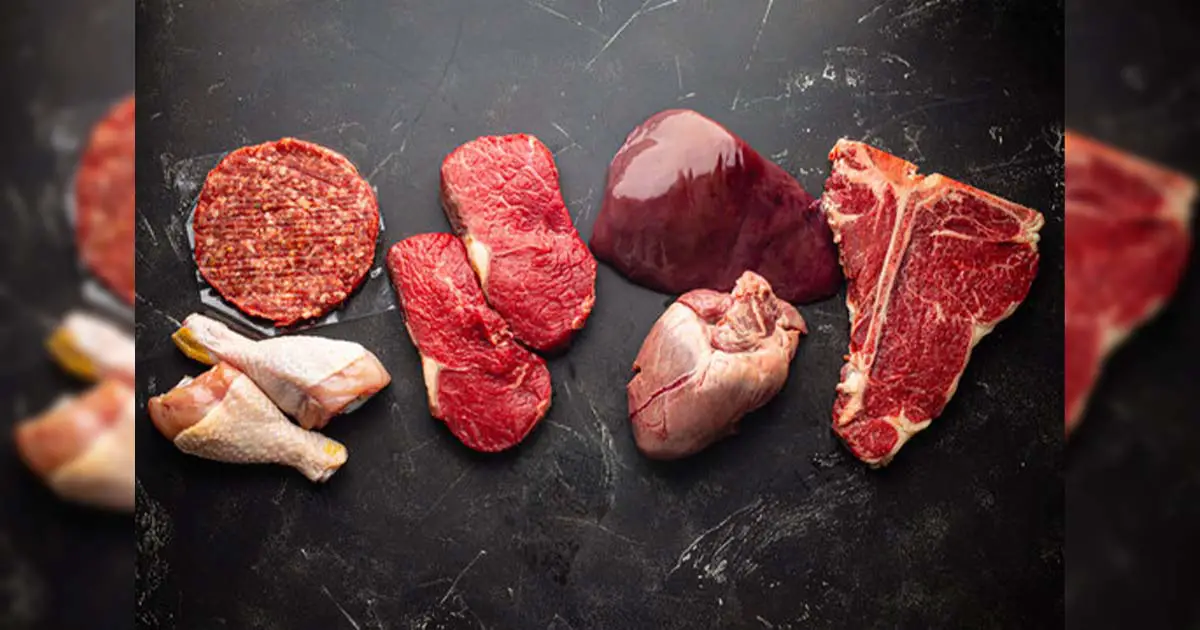Welcome to our exploration of the Carnivore Diet and a specific query that coffee lovers often ponder: Can you drink black coffee on the Carnivore Diet? As we delve into this burning question, we’ll also touch upon related queries that many enthusiasts have. So, grab your mug and let’s embark on this flavorful journey through the realms of Carnivore living.
Table of Contents
ToggleUnderstanding the Carnivore Diet:
Before we jump into the coffee cup, let’s quickly revisit the basics of the Carnivore Diet. It’s a dietary regimen that primarily involves the consumption of animal products while avoiding plant-based foods. The focus is on meat, fish, and other animal-derived foods, excluding carbohydrates and plant-based foods.
Does Carnivore diet reduce belly fat?
The carnivore diet, which primarily consists of animal products and excludes plant-based foods, has gained popularity in recent years. Proponents of the carnivore diet claim various health benefits, including weight loss and reduced body fat. However, it’s important to note that the scientific evidence supporting these claims is limited, and the long-term effects of such a diet are not well understood.
Some potential reasons why people may experience weight loss, including a reduction in belly fat, on a carnivore diet could be:
- Caloric Restriction: Individuals may naturally consume fewer calories on a carnivore diet, leading to weight loss. When you limit your food choices to animal products, you may find it challenging to consume as many calories as you would on a more varied diet.
- Increased Protein Intake: Protein is known to be more satiating than carbohydrates or fats, which may lead to a reduction in overall calorie intake. Additionally, a higher protein intake may help preserve lean muscle mass during weight loss.
- Insulin Sensitivity: Some proponents of the carnivore diet argue that it improves insulin sensitivity, which could potentially help with fat loss. However, more research is needed to understand the long-term effects on metabolic health.
It’s important to approach any restrictive diet with caution. While some individuals may see short-term improvements in weight and body composition, the long-term health effects of exclusively consuming animal products are not well-established. The diet lacks the diversity of nutrients found in a balanced diet that includes fruits, vegetables, and whole grains.
How long can you stay on Carnivore diet?
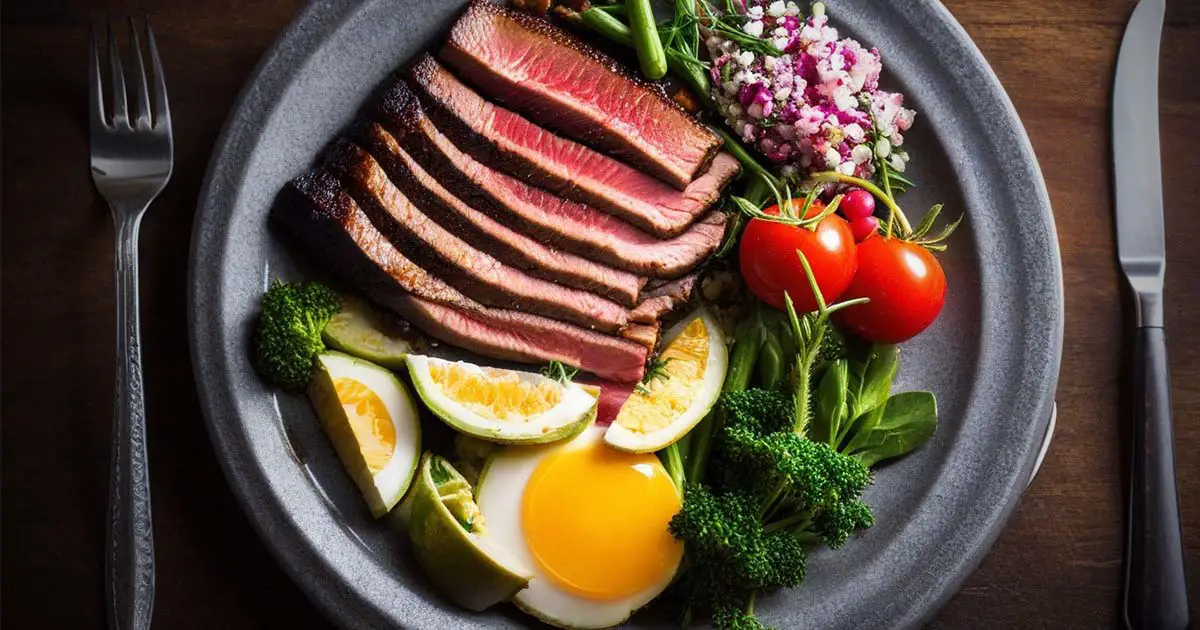
The length of time one can stay on a carnivore diet varies from person to person. The carnivore diet, also known as an all-meat diet, involves consuming only animal products and excludes plant-based foods. Some people adopt this diet for short periods as an experiment or to address specific health issues, while others may choose to follow it for more extended periods.
It’s important to note that long-term adherence to a carnivore diet may raise concerns about nutrient deficiencies, as certain essential nutrients are primarily found in plant-based foods. While meat provides essential proteins, fats, and some vitamins and minerals, it may lack certain fiber, antioxidants, and phytonutrients found in fruits, vegetables, and other plant sources.
Before making any significant changes to your diet, it’s advisable to consult with a healthcare professional or a registered dietitian. They can provide personalized advice based on your health status, nutritional needs, and any underlying conditions you may have. Regular health check-ups and monitoring are crucial to ensure that your diet supports overall well-being and doesn’t lead to nutritional imbalances or deficiencies.
Who should avoid the Carnivore diet?
While some individuals may choose to follow a carnivore diet for various reasons, it’s important to note that this diet is not suitable for everyone. Here are some groups of people who should exercise caution or avoid the carnivore diet:
- Individuals with Certain Health Conditions:
- People with kidney issues should be cautious, as a high protein intake could potentially worsen their condition.
- Individuals with metabolic disorders or certain digestive issues may find the diet challenging.
- Pregnant and Breastfeeding Women:
- Pregnant and breastfeeding women have increased nutritional needs, and the carnivore diet may not provide sufficient micronutrients like folic acid and other essential nutrients for fetal development and lactation.
- Those Prone to Nutrient Deficiencies:
- The diet lacks certain vitamins and minerals found in plant foods, such as vitamin C, fiber, and various phytonutrients. A prolonged deficiency in these nutrients can lead to health issues.
- Athletes and Those with High Energy Expenditure:
- Athletes and individuals with high energy requirements may find it challenging to meet their energy needs solely from animal products, which tend to be more calorie-dense.
- People with Gastrointestinal Sensitivities:
- Some individuals may experience digestive issues, such as constipation, on a carnivore diet due to the lack of fiber.
- Those Concerned about Environmental Impact:
- From an ethical and environmental perspective, individuals concerned about sustainability and the impact of animal agriculture may choose to avoid the carnivore diet.
Before starting any restrictive diet, it is crucial to consult with a healthcare professional or a registered dietitian to assess individual health status, nutritional needs, and potential risks associated with the chosen dietary pattern. Regular health monitoring and blood tests can help identify any deficiencies or imbalances that may arise from a specific diet.
Can you drink coffee on Carnivore diet?

Yes, many people who follow a carnivore diet do include coffee in their routine. Coffee itself is a plant-based beverage, but it is often considered acceptable on the carnivore diet for several reasons:
- Low in Calories and Carbohydrates: Black coffee is very low in calories and carbohydrates, which are two components that people on a carnivore diet typically want to limit.
- No Plant Antinutrients: While coffee comes from a plant, the beans are processed in a way that removes many of the antinutrients that are present in other plant foods. Antinutrients are compounds that can interfere with the absorption of nutrients.
- Mental Alertness: The caffeine in coffee can provide a boost in mental alertness and energy levels, which some individuals find beneficial, especially when transitioning to a new diet.
It’s important to note that individual responses to coffee can vary, and some people may choose to exclude it from their carnivore diet for personal reasons or due to sensitivity to caffeine. If you decide to include coffee, it’s best to consume it without additives such as sugar, milk, or other non-animal-based ingredients to align with the principles of the carnivore diet.
Can you drink black coffee on Carnivore diet?

What is Black Coffee?
Black coffee refers to coffee that is brewed without any additives such as milk, cream, sugar, or flavorings. It is essentially plain coffee made by combining ground coffee beans with water through methods like drip brewing, pour-over, French press, or espresso. The absence of any additional ingredients gives black coffee its distinct strong and bold flavor. Some people enjoy black coffee for its simplicity and the pure taste of the coffee beans, while others may find it an acquired taste due to its intensity.
Black Coffee and the Carnivore Diet:
The good news for coffee enthusiasts is that black coffee is generally considered acceptable on the Carnivore Diet. Black coffee contains no carbohydrates or significant calories, making it a zero-carb beverage. This aligns with the principles of the Carnivore Diet, which emphasizes low to zero carbohydrate intake.
What Makes Black Coffee Compatible?
- Zero Carbohydrates: Black coffee contains no carbohydrates, aligning with the Carnivore Diet’s restriction on plant-based foods.
- Minimal Calories: With minimal calories, black coffee won’t disrupt the diet’s focus on nutrient-dense animal products.
- Natural Energy Boost: The caffeine in black coffee can provide a natural energy boost, which may be beneficial for those on the Carnivore Diet.
Considerations and Moderation:
While black coffee can be a Carnivore-friendly beverage, moderation is key. Excessive caffeine intake may have individualized effects, and some people may be more sensitive to its stimulating properties. Listen to your body, and if you experience any adverse effects, it might be worth moderating your coffee consumption.
Related Questions:
Now that we’ve addressed the compatibility of black coffee with the Carnivore Diet, let’s explore some related questions that often arise:
1. Can you add anything to your coffee on the Carnivore Diet? Yes, some individuals choose to add fats like butter or ghee to their coffee. This is known as “bulletproof coffee” and is a way to increase calorie intake, especially for those aiming for higher fat consumption on the Carnivore Diet.
2. How does coffee impact digestion on the Carnivore Diet? While some people find that coffee aids digestion, others may experience sensitivities. It’s essential to observe how your body reacts and make adjustments accordingly.
Why You Should Avoid Coffee on the Carnivore Diet?

The Carnivore Diet is a dietary approach that emphasizes the consumption of animal products while excluding most or all plant-based foods. Some proponents of the Carnivore Diet suggest avoiding coffee for several reasons:
- Antinutrients in Coffee: Coffee contains compounds known as antinutrients, such as tannins and phytic acid. Antinutrients can interfere with the absorption of essential nutrients in the body. While this concern is not unique to the Carnivore Diet, individuals following this diet may choose to minimize their intake of substances that could potentially hinder nutrient absorption.
- Potential Irritant: Coffee is acidic, and some individuals may find it irritating to the digestive system. People on the Carnivore Diet often aim for optimal digestive health, and some may choose to eliminate potential irritants to achieve this goal.
- Impact on Sleep: Caffeine, a stimulant found in coffee, can affect sleep patterns. Since sleep is crucial for overall health, some individuals on the Carnivore Diet may choose to avoid coffee to optimize their sleep quality. Disrupted sleep patterns can have various negative effects on well-being, including impaired cognitive function and increased stress.
- Potential for Additives: Some individuals may add sweeteners, creamers, or other additives to their coffee, which may not align with the principles of the Carnivore Diet. For those who follow a strict interpretation of the diet, any non-animal-derived substances are typically excluded.
- Individual Sensitivities: The Carnivore Diet often involves a process of self-discovery to identify individual food sensitivities and optimize health. Some people may find that coffee negatively affects their well-being, leading them to exclude it from their diet.
It’s important to note that the decision to avoid coffee on the Carnivore Diet is a personal choice, and not all individuals following this diet choose to eliminate coffee. Some may tolerate coffee well and find it to be a source of pleasure or mental alertness without apparent negative effects. As with any dietary approach, individual responses can vary, and it’s advisable to listen to your body and make choices based on your own health and well-being. Before making significant changes to your diet, it’s recommended to consult with a healthcare professional or a registered dietitian.
Alternatives to Coffee on the Carnivore Diet:
On the carnivore diet, which primarily consists of animal products, finding suitable alternatives to coffee can be challenging, as traditional coffee alternatives often come from plant sources. However, if you’re looking for alternatives that align with the carnivore diet principles, here are some options:
- Bone Broth:
- Rich in minerals and collagen, bone broth can be a satisfying and nourishing alternative. It provides warmth and a savory flavor without the acidity of coffee.
- Herbal Teas (Non-caffeinated):
- Herbal teas made from ingredients like peppermint, chamomile, or rooibos are plant-based but can be included in moderation. Ensure they are caffeine-free and don’t contain any non-carnivore-friendly additives.
- Salted Water:
- Some people on the carnivore diet choose to drink salted water for electrolyte balance. Adding a pinch of high-quality salt to water can provide a different kind of refreshment.
- Bone Marrow Broth:
- Similar to bone broth, bone marrow broth is particularly rich in nutrients and adds a unique flavor. It’s a great warm beverage option.
- Egg Yolk Coffee:
- If you’re open to experimenting, some people incorporate raw egg yolks into their coffee or consume them separately. This adds a creamy texture and extra nutrients.
- Beef or Chicken Bouillon:
- Make a warm beverage using beef or chicken bouillon cubes. Ensure they have minimal additives and are in line with your carnivore diet preferences.
- Carnivore-Friendly Collagen Drinks:
- Some collagen supplements come in liquid form and can be added to water. Check for options that are free from additives and sweeteners.
- Mineral Water:
- Sparkling or still mineral water is another option. Look for mineral water without added flavors or sweeteners.
Remember that individual responses to these alternatives may vary. It’s crucial to pay attention to your body’s signals and adjust your choices accordingly. Additionally, always check product labels to ensure they meet your carnivore diet criteria.
How to lose fat fast on Carnivore diet?
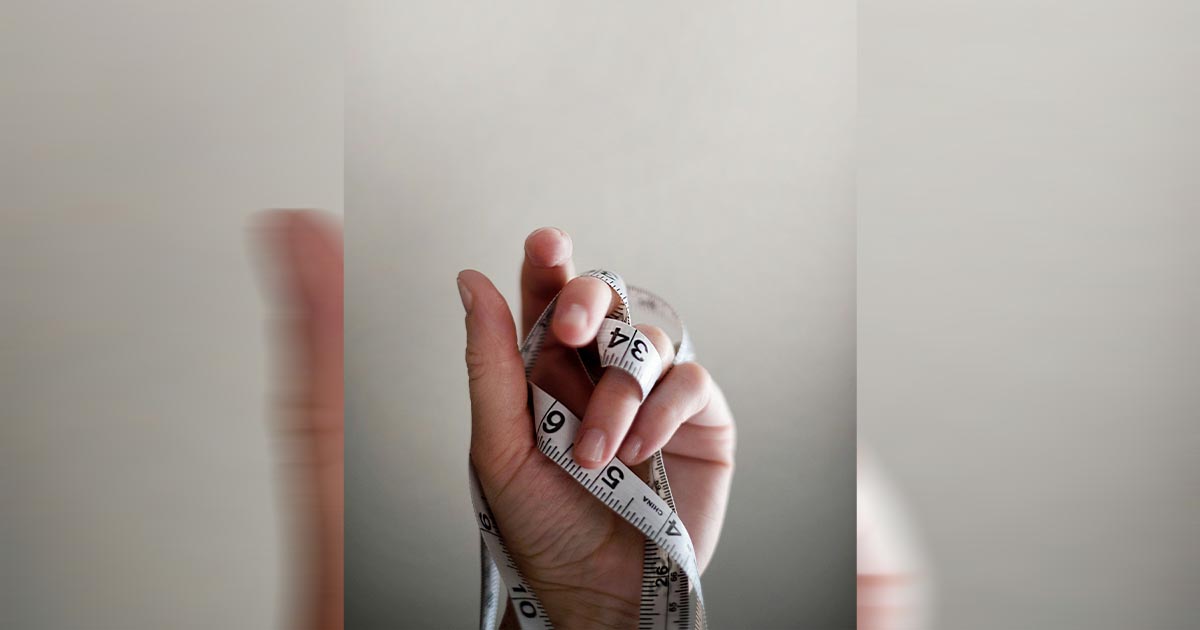
Embarking on a Carnivore diet with the goal of losing fat rapidly requires a strategic approach. Firstly, prioritize nutrient-dense animal products rich in healthy fats and high-quality proteins. Opt for fatty cuts of meat, organ meats, and eggs, as they provide essential nutrients while keeping carbohydrate intake minimal. Eliminate processed foods, sugars, and even certain dairy products to maintain a strict carnivorous focus. This approach helps initiate ketosis, a metabolic state where the body burns fat for fuel, aiding in faster fat loss.
In addition to dietary adjustments, incorporating intermittent fasting can enhance the fat-burning effects of the Carnivore diet. Restricting the eating window and allowing the body to experience periods of fasting promotes insulin sensitivity and encourages the utilization of stored fat for energy. Consider adopting a schedule such as the 16/8 method, where you fast for 16 hours and consume your meals within an 8-hour window. This synergistic approach of Carnivore eating and intermittent fasting can amplify fat loss results.
Consistency and mindful eating play pivotal roles in achieving rapid fat loss on a Carnivore diet. Pay attention to your body’s hunger and satiety cues, and avoid overeating even within the allowed food groups. Staying hydrated is crucial, as water helps with digestion and can contribute to a feeling of fullness. Additionally, incorporate strength training exercises to preserve lean muscle mass, as this aids in maintaining a healthy metabolism while shedding excess fat. Remember, while a Carnivore diet can be effective for fat loss, it’s essential to listen to your body, monitor your progress, and make adjustments as needed for optimal results.
What salt is best for Carnivore diet?
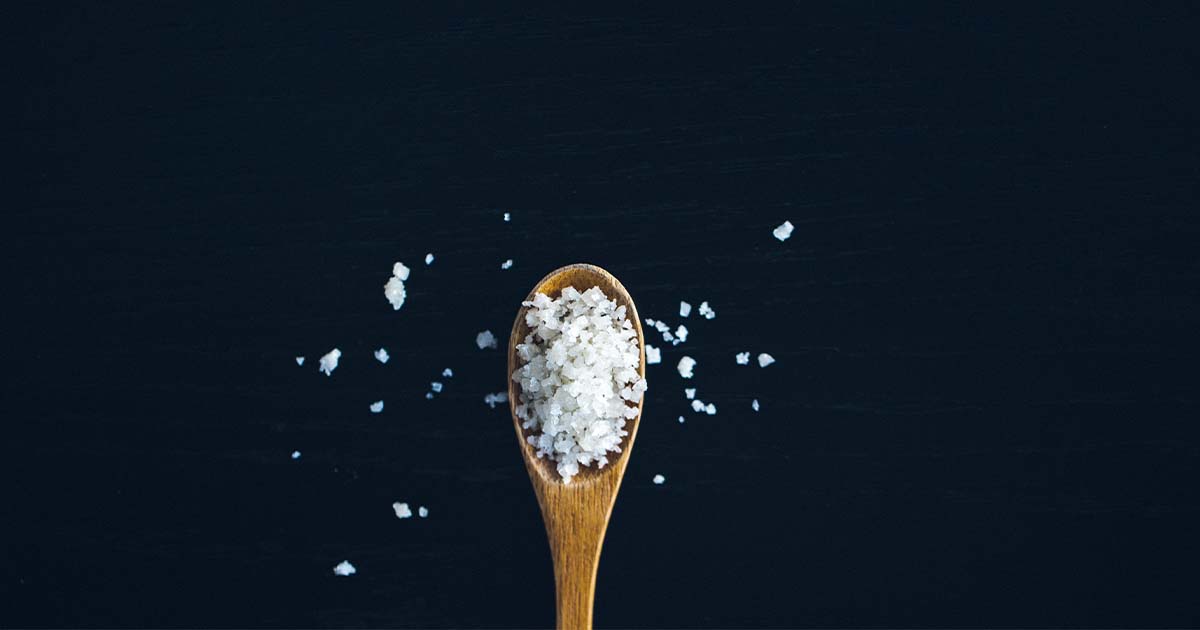
On the Carnivore diet, selecting the right salt is crucial to support your nutritional needs and maintain electrolyte balance. Opting for unrefined salt, such as Himalayan pink salt or sea salt, is a favorable choice. These salts contain a spectrum of minerals, including magnesium, potassium, and calcium, which can contribute to overall electrolyte health. Unlike highly processed table salt, unrefined options provide additional nutrients that align with the nutrient-dense principles of the Carnivore diet.
Electrolyte balance is essential on a Carnivore diet, especially considering the limited variety of food sources. Himalayan pink salt, in particular, is celebrated for its unique mineral composition and is often recommended for those following a carnivorous lifestyle. Its natural balance of minerals can help prevent electrolyte imbalances commonly associated with low-carbohydrate diets, potentially alleviating issues like muscle cramps and fatigue.
Regardless of the salt choice, it’s crucial to listen to your body and adjust your salt intake based on individual needs. Some individuals on the Carnivore diet may find they need to increase their salt intake to compensate for reduced carbohydrates and support optimal hydration. Experiment with different types of salt to find what works best for you, and consider consulting with a healthcare professional to ensure you’re meeting your specific nutritional requirements on the Carnivore diet.
Is Almond milk OK on Carnivore diet?
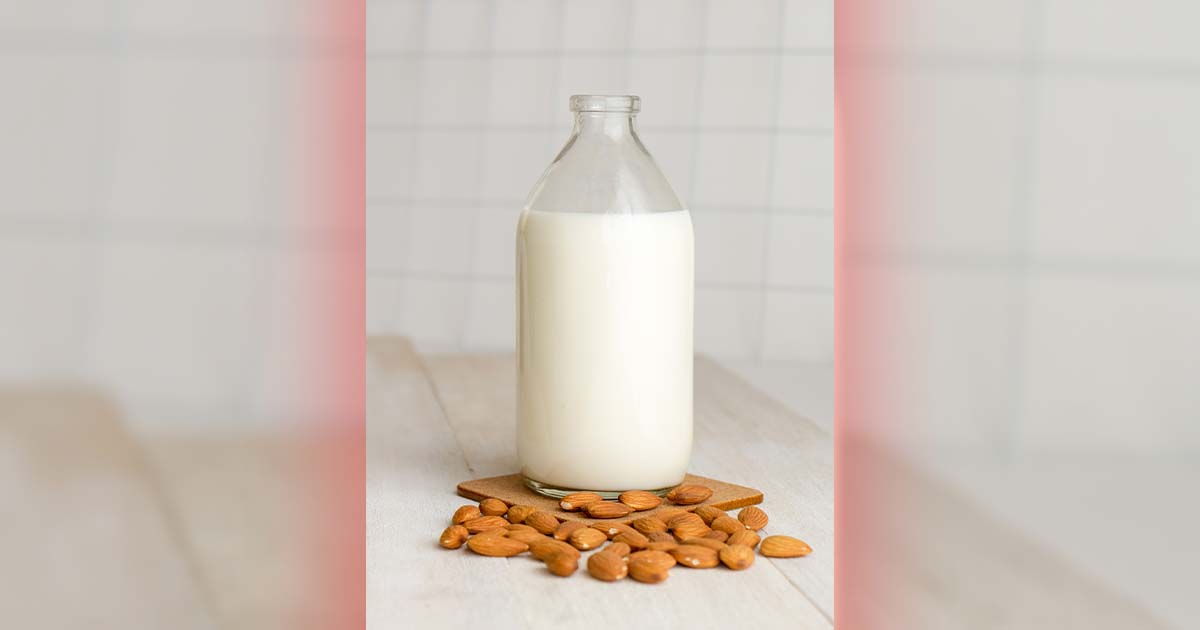
The carnivore diet is typically characterized by the exclusive consumption of animal products, with an emphasis on meat, fish, and other animal-derived foods. Almond milk, being a plant-based product, does not align with the principles of the carnivore diet.
In a strict carnivore diet, individuals generally avoid plant-based foods, including fruits, vegetables, grains, and plant-derived beverages like almond milk. The goal of the carnivore diet is to derive nutrition primarily from animal sources, such as meat and animal fats, while excluding plant-based carbohydrates.
If you’re following a carnivore diet, it’s advisable to focus on animal-based foods and eliminate or minimize the consumption of plant-based products, including almond milk. However, it’s essential to consult with a healthcare professional or nutritionist before making significant changes to your diet to ensure that your nutritional needs are being met.
What oils are OK on Carnivore diet?
On a carnivore diet, the emphasis is on consuming animal products, particularly meat and animal fats. Therefore, oils that are derived from animal sources are generally considered acceptable. Some of the oils that are typically considered suitable for the carnivore diet include:
- Animal Fats: Fats from animals like beef tallow, lard (pork fat), and duck fat are commonly used in a carnivore diet. These fats are rich in saturated fats and can be used for cooking or added to meals.
- Butter: Butter, especially from grass-fed or pasture-raised animals, is a popular choice for adding flavor and healthy fats to meals.
- Ghee: Ghee is clarified butter, where the milk solids are removed. It is low in lactose and casein, making it suitable for some individuals who are sensitive to dairy.
- Bone Marrow Fat: Extracted from the marrow inside bones, bone marrow fat is another source of nutritious fat in a carnivore diet.
It’s important to note that plant-based oils such as olive oil, coconut oil, and other vegetable oils are not typically considered part of the carnivore diet. The primary focus is on obtaining fats from animal sources. As with any diet, individual responses can vary, and it’s advisable to consult with a healthcare professional or nutritionist to ensure that your nutritional needs are being met.
What can I drink on a Carnivore diet?
On a Carnivore diet, your primary beverage choice should be water. Staying adequately hydrated is essential for overall health, and water supports digestion, nutrient absorption, and detoxification. Aim to consume an ample amount of clean, filtered water throughout the day to maintain proper hydration levels. While coffee and tea are generally low in carbohydrates, it’s advisable to consume them in moderation and observe how your body responds, as some individuals may be sensitive to certain compounds present in these beverages.
Another suitable drink for the Carnivore diet is bone broth. Rich in collagen, essential amino acids, and minerals, bone broth provides a nourishing option that aligns with the principles of this diet. It can be a warm and comforting addition to your routine, offering potential benefits for joint health, skin, and gut function. Choose homemade bone broth or select commercial options with minimal additives for the best results.
While water and bone broth are the primary recommended beverages on the Carnivore diet, some individuals may also include small amounts of certain dairy products if well-tolerated. High-fat, low-carbohydrate options like full-fat cream or butter in your coffee, for instance, may be permissible for some individuals. However, it’s crucial to assess your own tolerance to dairy and monitor how it affects your overall well-being, as some people may experience sensitivities or digestive issues with dairy products.
Is black pepper OK for Carnivore diet?
The inclusion of black pepper on the Carnivore diet is a matter of personal preference and individual tolerance. While some individuals strictly adhere to consuming only animal products, others may choose to include certain spices, herbs, or seasonings based on their personal preferences and how their bodies respond. Black pepper is generally considered low in carbohydrates and can be included in small amounts without significantly impacting the overall macronutrient composition of the Carnivore diet.
However, it’s important to note that individual reactions to spices can vary. Some people may find that even small amounts of spices like black pepper can cause sensitivities or digestive issues. If you’re following a strict Carnivore diet for health reasons or specific dietary goals, you may want to experiment with and without black pepper to observe how it affects your well-being.
Ultimately, the Carnivore diet is highly individualized, and each person may find their own variations that work best for them. If you have specific health concerns or are unsure about including black pepper, it’s advisable to consult with a healthcare professional or nutritionist who can provide personalized guidance based on your unique needs and goals.
Is cheese allowed on Carnivore diet?
The inclusion of cheese on the Carnivore diet is a subject of debate among followers of this eating approach. While the Carnivore diet typically emphasizes animal products and minimal plant-based foods, some individuals choose to include certain dairy products like cheese. The decision to include cheese depends on personal preferences, tolerances, and specific goals.
It’s important to note that not all cheeses are created equal, and the carbohydrate content can vary. High-quality, full-fat cheeses with minimal additives are generally preferred for those on the Carnivore diet. However, some individuals may find that even small amounts of cheese can cause digestive issues or hinder their progress on the diet.
If you’re considering incorporating cheese into your Carnivore diet, it’s recommended to observe how your body responds. Pay attention to any signs of sensitivities or changes in well-being. If you have specific health concerns or dietary goals, consulting with a healthcare professional or nutritionist can provide personalized advice on whether including cheese aligns with your individual needs and the principles of the Carnivore diet.
Can you eat hot dogs on Carnivore diet?
The acceptability of hot dogs on the Carnivore diet depends on the specific ingredients used in the hot dogs. Traditional hot dogs often contain a mixture of meats and may include additives, fillers, and preservatives, which may not align with the principles of a strict Carnivore diet. Some individuals following a Carnivore diet prefer to avoid processed meats and opt for whole cuts of unprocessed meat to ensure they are consuming only animal products without additives.
If you choose to include hot dogs in your Carnivore diet, it’s essential to carefully read the product labels. Look for hot dogs made from high-quality, minimally processed meat with no added sugars, fillers, or artificial ingredients. Alternatively, you can consider making your own hot dogs using ground meat and spices to have more control over the ingredients.
As with any food on the Carnivore diet, paying attention to how your body responds is crucial. Some individuals may find that processed meats, even those without additives, can cause sensitivities or digestive discomfort. If you have specific health goals or concerns, it’s advisable to consult with a healthcare professional or nutritionist to ensure that your dietary choices align with your individual needs on the Carnivore diet.
What seasonings to avoid on Carnivore diet?
The carnivore diet primarily involves consuming animal products and excludes most plant-based foods. While individual preferences may vary, some people on the carnivore diet prefer to avoid certain seasonings and spices that come from plants. The goal is to stick to animal-based foods to maintain the principles of the diet. Here are some seasonings that individuals on the carnivore diet may choose to avoid:
- Herbs and Spices: Many herbs and spices come from plants and may be excluded on the carnivore diet. This includes popular choices like basil, oregano, thyme, and rosemary.
- Pepper: Black, white, and other varieties of pepper are derived from the pepper plant and are plant-based seasonings. Some individuals on the carnivore diet may choose to avoid them.
- Paprika: Paprika is made from ground peppers and can add a smoky flavor to dishes. As it is plant-derived, it may not be included in the carnivore diet.
- Garlic and Onion: While these are popular flavor enhancers, they come from plants and may be omitted by those strictly following the carnivore diet.
- Cumin, Coriander, and Turmeric: These spices are common in many cuisines but are plant-based, and individuals on the carnivore diet might choose to exclude them.
- Mustard: Mustard seeds are from the mustard plant, and mustard is a plant-based condiment that may not align with the carnivore diet.
It’s important to note that the carnivore diet is highly individualized, and some people may include small amounts of certain seasonings without negatively impacting their adherence to the diet. As with any diet, it’s recommended to consult with a healthcare professional or a nutritionist to ensure that nutritional needs are being met. Additionally, experimenting with different seasonings and observing how your body responds can help you determine what works best for you on the carnivore diet.
Conclusion:
In the world of the Carnivore Diet, the question “Can you drink black coffee on the Carnivore diet?” is a common one, and the answer is affirmative. Black coffee can seamlessly find its place in your routine. With zero carbs and minimal calories, it’s a flavorful addition for those who enjoy the ritual of coffee consumption. As always, individual responses may vary, so pay attention to your body’s signals and make informed choices as you savor your cup of black gold on the Carnivore journey.
Related content:
Can I drink coffee before or after donating plasma? Shocking Facts!

